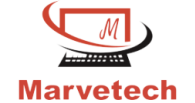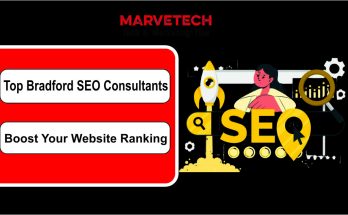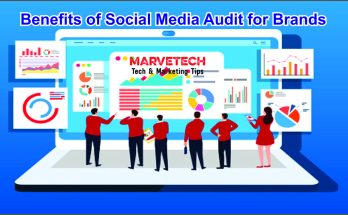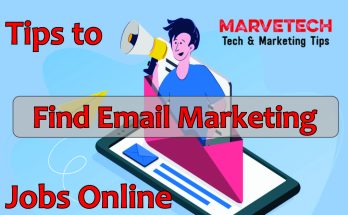The Rise of Artificial Intelligence (AI) has brought both promise and apprehension. While AI (Artificial Intelligence) offers unmatched efficiency and innovation, it also sparks concerns about its potential to replace human jobs. In this ever changing landscape, it’s crucial for individuals to take proactive steps to secure their careers.
Artificial Intelligence (AI) is transforming industries at an unprecedented rate, automating tasks that were once the domain of humans. While AI offers immense benefits, it has also sparked concerns about job displacement. However, instead of fearing AI, individuals can take proactive steps to safeguard their careers.
This article will explore 8 effective strategies that can help protect your job from AI the impact of AI while fostering professional growth and adaptability.
Here Are 8 Best Ways to Protect Your Job from AI.
1. Embrace Lifelong Learning:
One of the most effective ways to safeguard your job is by continually updating your skills and knowledge. Invest in ongoing education and training to stay ahead of Artificial Intelligence developments in your industry.
2. Develop Soft Skills:
Artificial Intelligence excels at performing repetitive, data driven tasks. To remain relevant, focus on honing soft skills such as creativity, problem solving, communication, and emotional intelligence. These human enteric skills are difficult for AI to replicate.
3. Specialize in AI Integration:
Rather than competing with AI, consider becoming an expert in AI integration. Organizations need professionals who can effectively implement AI solutions, integrate them with existing systems, and optimize their performance. Being at the forefront of this transition can enhance your job security.
4. Adopt a Growth Mindset:
Embrace change and view AI as a tool that can enhance your productivity and decision-making abilities. A growth mindset enables you to adapt to new technologies and challenges, making you more valuable to employers.
5. Collaborate with AI
AI is most effective when it collaborates with humans. Learn how to work alongside AI systems, understand their outputs, and leverage their insights to make better decisions. This synergy can make you an indispensable asset.
6. Stay Informed About Industry Trends
Regularly follow industry news and trends related to AI. This knowledge will help you anticipate changes in your field and identify opportunities to position yourself as a valuable resource in AI-related projects.
7. Network and Build Relationships
Strong professional networks can provide job security. Connect with colleagues, attend industry events, and engage in online communities to stay in the loop about job openings and opportunities.
8. Diversify Your Skill Set
Don’t rely solely on one skill or specialization. Cross train in related areas to broaden your expertise. For example, if you work in marketing, learn about data analysis and AI powered marketing tools to complement your traditional skills.
Here Are More Details for Each of The 8 Best Ways to Protect Your Job from AI

Embrace Lifelong Learning:
Enroll in online courses, workshops, or formal education programs to acquire new skills. Explore emerging technologies, such as machine learning, data science and automation, to understand their applications in your field.
Develop Soft Skills
Creativity: Cultivate your ability to generate innovative ideas and solutions. Problem-solving: Sharpen your skills in identifying and resolving complex issues. Communication: Enhance your ability to convey ideas effectively, both in writing and verbally. Emotional Intelligence: Build empathy and social skills to work well with others and understand human nuances.
Specialize in AI Integration
Learn about AI frameworks, tools, and platforms relevant to your industry. Understand how AI can improve processes, increase efficiency, and drive innovation in your organization. Develop expertise in data management, as quality data is crucial for AI success.
Adopt a Growth Mindset:
Embrace change and view challenges as opportunities for growth and learning. Be open to feedback and use it as a means to improve your skills and performance. Cultivate resilience to bounce back from setbacks and adapt to evolving situations.
Collaborate with AI:
Familiarize yourself with AI systems and their capabilities. Explore AI-powered tools and platforms that can assist you in your daily tasks. Seek opportunities to work alongside AI to enhance your productivity and decision-making.
Stay Informed About Industry Trends
Subscribe to industry newsletters, blogs, and podcasts to stay updated on AI developments. Attend conferences, webinars, and seminars focused on AI and its applications in your sector. Join online forums and communities where professionals discuss AI-related topics.
Network and Build Relationships
Attend networking events, both in person and online, to connect with peers, mentors, and potential employers. Participate in professional associations or groups related to your field. Leverage social media platforms like LinkedIn to expand your professional network.
Diversify Your Skill Set
Identify complementary skills that can enhance your primary expertise. If you’re in a technical role, consider learning about project management or leadership skills. Cross-training allows you to adapt to changing job requirements and opens up new career paths.
Conclusion
In Conclude, Artificial Intelligence (AI) represents a transformative force in today’s world, mimicking human intelligence and revolutionizing industries. Its applications range from enhancing efficiency in businesses to powering cutting-edge healthcare solutions and autonomous systems. As AI continues to advance, it will shape the future of work and society, making it crucial for individuals and organizations to harness its potential responsibly while addressing ethical and societal implications for a more prosperous and equitable future.




